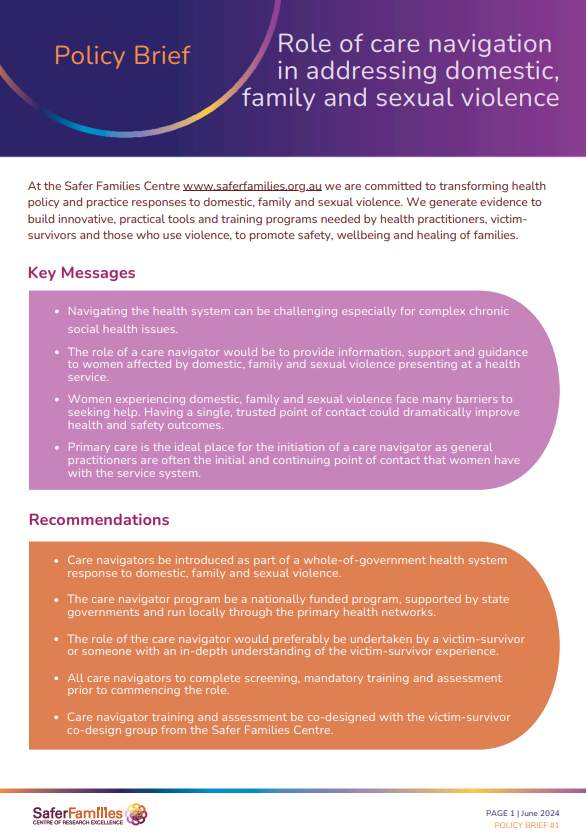Role of care navigation in addressing domestic, family and sexual violence
Domestic, family and sexual violence (DFSV) is a pervasive and complex social issue with severe consequences for the health and well-being of women in Australia. General Practitioners (GPs) play a crucial role in identifying and addressing DFSV, as they are the most frequently consulted professionals by affected women. However, many women experiencing DFSV do not seek help, citing barriers such as shame, lack of awareness of services, practitioner availability, limited options, and costs. Moreover, women from culturally and linguistically diverse (CALD) backgrounds face additional challenges in accessing support. Navigating the healthcare system can be complex and intimidating for women seeking help. There is a need for a single point of contact and dedicated advocate in the system to improve victim-survivors' experiences and expedite their recovery.


